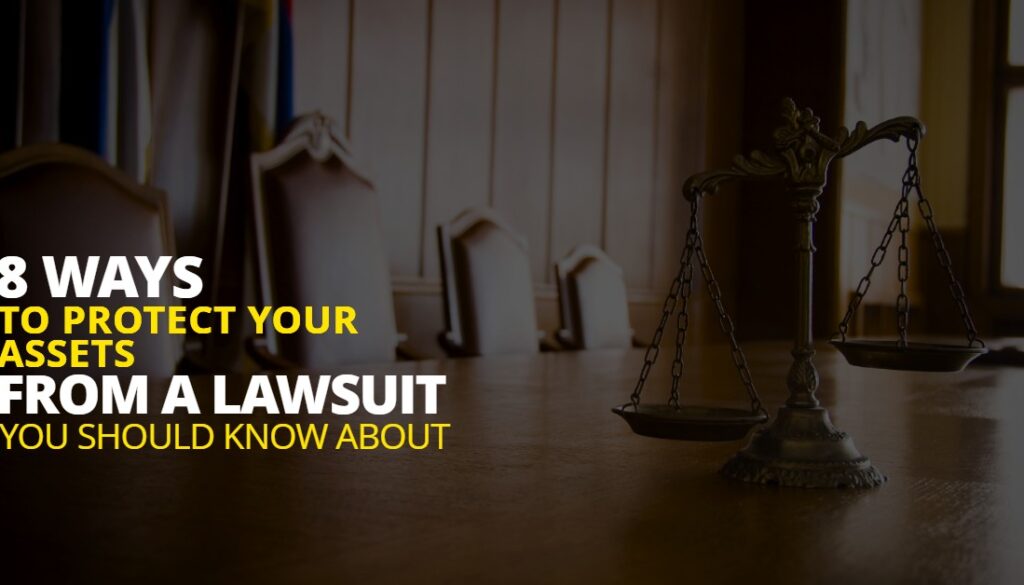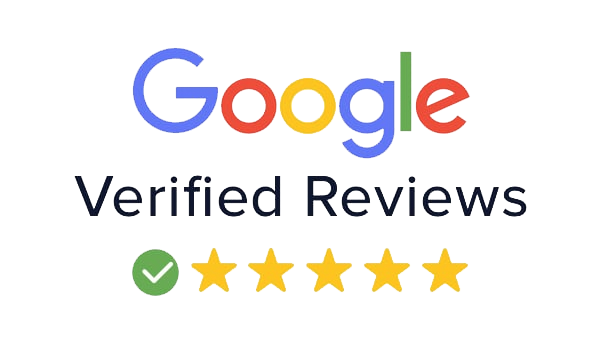The 8 Ways To Protect Your Assets From A Lawsuit You Should Know About

To protect what you have, it’s vital to take some defensive measures, to make it more difficult for creditors to seize your assets in the event you lose a lawsuit, have a judgment entered against you, or are forced into bankruptcy.
1. Use Business Entities
It’s important to separate your personal assets from those of your business. If you neglect to take specific legal steps to create a separate business entity, such as a corporation, limited liability company (LLC), or limited partnership, a simple business dispute could well cost you everything you own.
There are a number of business entities to consider:
- Sole Proprietorships. Sole proprietorships offer no limit on personal liability. One mistake could cost you your home, depending on your state.
- General Partnerships. General partnerships are the worst. If your business partner has a personal dispute that has nothing to do with you and he or she loses a lawsuit, you two are joined at the hip. Technically, lawyers could come after you because of your partner’s actions, whether regarding the company or his or her personal life.
- Limited Partnerships. Limited partnerships can help limit your liability. If you invest as a limited partner in a partnership, you cannot be sued for anything more than what you have invested in the business. The worst that can happen is that your investment will be wiped out. But lawyers cannot come after you personally to make good on a claim against the business. Here’s the catch: You can’t take an active role in running the business. If you do, you are a general partner, and your assets are fair game.
- Corporations. Corporations provide excellent asset protection for their owners, at least when it comes to lawsuits against the corporation. With the exception of cases of egregious fraud – such as if you fail to pay payroll taxes to the IRS, or if you do not treat your corporation as a separate entity from yourself – your personal assets cannot be stripped from you in the event that your business loses a lawsuit. The issue with corporations comes when the owner is personally sued. In that case, the owner’s creditors could levy on the owner’s stock in the corporation. There are two kinds of corporations: S corporations and C corporations. They are taxed differently and have different restrictions on ownership, but both provide similar asset protection for their owners.
- Limited Liability Companies. Limited liability companies also provide asset protection against business lawsuits for their owners, but with fewer restrictions on ownership than S corporations. They also allow their owners to choose whether to file federal taxes as a corporation or as a partnership. There is one major advantage LLCs have in some jurisdictions: charging order protection. If your corporation loses a suit, a judge could award a number of the shares of the business to the creditor. This gives them access to your books. With an LLC, even if the plaintiff gets a membership interest, he can’t force a distribution of cash, but he still gets taxed as if he received it. This “poison pill” can help you prevent a lawsuit or settle on favorable terms.
2. Own Insurance
Some professions generate more exposure to liability than others. If you are a financial advisor, an OBGYN, a real estate agent, or a professional in any other field that generates a lot of lawsuits for malpractice, keep your errors and omissions coverage paid up, and, if you can afford to, invest in extra or expanded coverage. As a general rule, get more coverage but with higher deductibles. Be less concerned about paying a $1,000 deductible than getting wiped out financially. But don’t stop there – you also need to enact these kinds of coverages:
- Homeowners Insurance. Homeowners insurance helps cover you if someone is hurt on your property. Choose a deductible you can cover with your savings, and make sure liability coverage is adequate in case someone gets hurt on your property and decides to sue you.
- Commercial Liability Insurance. This type of insurance protects your business if someone gets hurt on the premises, or is injured as the result of an action by an employee.
- Worker’s Compensation Insurance. This is mandatory in most jurisdictions. Worker’s compensation protects you and your workers alike by ensuring that there’s enough liquidity in place to take care of any employee who gets hurt on the job, and that the expenses don’t come out of your pocket.
- Auto Insurance. Don’t settle for the minimum legal liability coverage – additional coverage is usually affordable. Buy enough additional coverage for your auto insurance so that you will have meaningful protection in the event your vehicle is involved in an accident and generates a lawsuit. As a general rule of thumb, make sure your total liability coverage is at least equal to your total assets.
- Umbrella Coverage. Umbrella coverage is backup insurance that can be used in the instance that your other coverages are inadequate. In the event that your auto, homeowners, or other liability coverages are exhausted, umbrella coverage pays benefits up to the limit of the policy. For example, if you have $1 million in auto liability and get hit with a $2 million judgment, your umbrella policy will pick up the additional $1 million in coverage. Otherwise, the plaintiffs could start coming after you to seize assets for damages. Typically, these policies get underwritten for $1 to $5 million in face value. It’s usually very affordable.
- Long-Term Care Insurance. Long-term care insurance protects you against the financially devastating costs of in-home or nursing home care for chronic ailments, such as dementia, Alzheimer’s, strokes, paralysis, multiple sclerosis, spinal cord injuries, and the like. Medicare doesn’t provide much coverage for these afflictions, and most major medical insurance policies don’t provide any. Without long-term care insurance, you could be on the hook for more than $200 per day in nursing home costs – until the expenses drive you into poverty so you can qualify for Medicaid. The longer you wait, the higher the premiums get. Additionally, you could develop an ailment that would preclude you from getting coverage, or at least make it prohibitively expensive. Alternatively, consider purchasing long-term care insurance for your parents if you’ll otherwise be on the hook for this expense.
3. Use Retirement Accounts
Federal law provides unlimited asset protection to ERISA-qualified retirement plans, and up to $1 million in assets in an IRA in the event of bankruptcy. Some states provide even more protection to IRAs, though some states have opted out of the 2005 Bankruptcy Reform Act’s federal bankruptcy exemptions and exempt a lesser amount.
Check the laws in your state to see how much protection is provided to funds in these accounts. Speak to an attorney familiar with the laws in your state to determine whether creditors can opt between the state and federal exemption amounts.
If your state has a generous exemption, consider moving cash you won’t need until you reach at least age 59 1/2 into one of these protected entities. Bear in mind that you will be restricted by an annual contribution limit, which varies depending on the type of retirement plan. If you go over this limit or withdraw funds prior to age 59 1/2, you may be assessed penalties. Retirement accounts are excellent vehicles to protect long-term savings, and provide substantial tax benefits, but need to be thoroughly understood and used with care.
4. Homestead Exemptions
Some states provide a lot of protection to home equity, which means that if you declare bankruptcy, the law prohibits courts from awarding home equity to creditors. In some states, including Texas and Florida, state law protects an unlimited amount of home equity. Other states provide relatively little protection to home equity in the event of bankruptcy.
Check the laws in your state – if your state provides a generous homestead exemption, consider contributing extra principal to mortgage payments to protect those funds. Principal contributions to the vagaries of the housing market are subject to risk, in that you will lose access to the equity and the cash if property values fall.
Alternatively, if your state provides a minimal homestead exemption, accelerating mortgage payments or paying down principal may not make sense if you are looking to protect assets from creditors.
5. Titling
Examine how your home is titled. If you own your home with your spouse as tenants by the entirety, both you and your spouse own an indivisible interest in the home. If only one of you is named in a suit, creditors cannot force the other spouse to sell his or her interest in the house. Because the interest is indivisible, this can help you protect home equity where state law doesn’t provide a sufficient homestead exemption.
This option is only available in some states, and it only applies to your personal residence, not investment property. Other forms of titling include tenancy in common: joint tenants with rights of survivorship.
The way you have a property titled can have profound ramifications in the event a that creditor makes an attempt to seize it. Speak to a lawyer licensed in your state for specifics concerning your situation.
6. Annuities and Life Insurance
Some states provide significant protection to annuity balances and to assets in cash value life insurance policies. For instance, Florida provides unlimited protection to these assets, while Oregon provides protection for up to $500 per month in annuity income. Each state has its own laws, so check with an attorney licensed in your state for specific exemptions.
7. Get Rid of It
NOTE: This option should only be used if you are solvent and the transfer does not render you insolvent.
Creditors cannot seize assets that you no longer own. Therefore, consider transferring ownership to irrevocable trusts, from which family members may be able to draw an income or give the assets to family members outright, as part of a strategic gifting program. As of 2012, you can give away up to $13,000 per person without incurring a gift tax liability, subject to a lifetime gift tax exclusion of $5 million.
If you are in a high-risk profession, consider transferring assets to your heirs early – call it an “advance on your will.” If you don’t expect to need the money while you’re alive, you might benefit from watching them enjoy the inheritance. But beware of assuming that your loved ones will take care of you when you need the money. You must assume that whatever you give to someone else (even a spouse or your favorite child) is gone for good. A carefully crafted trust is the best solution when it comes to giving away your wealth.
8. Don’t Wait to Protect Yourself
You can’t wait until the lawsuit is imminent before you make these moves. If you do, the courts could rule that your transfer of funds into a protected class is a fraudulent conveyance and disallow the transfer, leaving those assets exposed.
Above all, don’t become a tempting target, and avoid displays of conspicuous consumption. This could attract trial lawyers and cause them to take a plaintiff’s case where they would otherwise pass on it.
Article reference:
www.moneycrashers.com/asset-protection-strategies/





